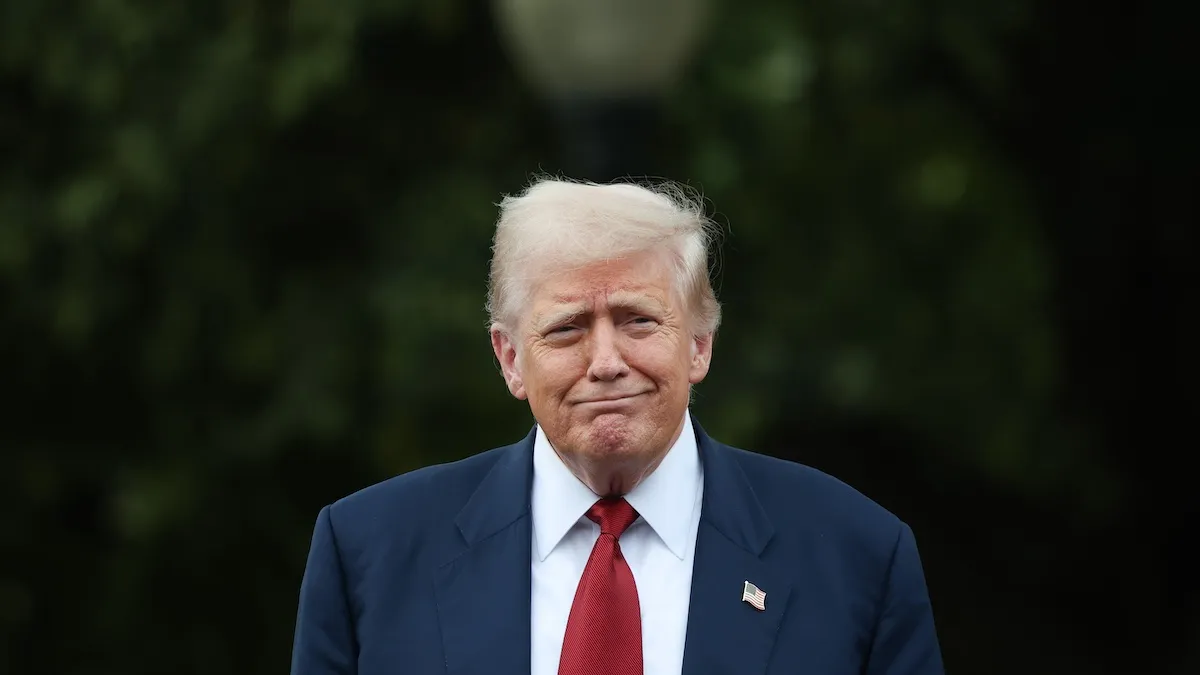During an appearance on CNBC’s Squawk Box on Tuesday, August 5, 2025, former President Donald Trump attempted to soften his hardline immigration stance, but ended up drawing sharp criticism for comments widely seen as racist and dehumanising. While trying to justify certain carve-outs for undocumented farm labourers amid his revived deportation agenda, Trump used language that revealed deep-seated stereotypes about both immigrant and Black communities.
Speaking with host Becky Quick, Trump argued that while his administration is pushing forward with deportations, it is also allowing some undocumented farmworkers to stay because of their role in agriculture. He said, “We’re sending them back and then they’re schooling, they’re learning, they’re coming in legally. We have a lot of that going on, but we’re taking care of our farmers. We can’t let our farmers not have anybody. These people, you can’t replace them very easily.”
He went on to add, “People that live in the inner city are not doing that work. They’re just not doing that work. And they’ve tried, we’ve tried, everybody tried. They don’t do it.” The phrase “inner city,” widely understood as a racial euphemism for Black Americans, ignited immediate backlash for its racial undertones. Trump suggested that Black Americans are either unwilling or unsuited for agricultural labor, reinforcing long-held racist stereotypes about work ethic and ability.
Trump further remarked on undocumented laborers’ physical endurance, quoting a farmer who allegedly told him, “They don’t get a bad back, sir, because if they get a bad back, they die.” He concluded, “In many ways, they’re very, very special people.” Critics say his comments reduced workers to disposable tools, implying that their value lies solely in their physical labor and ability to endure exploitation.
Many viewed this not as a defense of immigrants, but as a justification for maintaining an underpaid, vulnerable workforce for the benefit of the farming industry. Branden McEuen, a historian at Wayne State University who studies eugenics and race, wrote on Bluesky, “Trump saying people of color are naturally suited to farm labor sure sounds a lot like the slaveholders that said slaves were naturally inclined to servitude.” SiriusXM’s Michelangelo Signorile added, “The racism here is on steroids… Trump tried to make case to MAGA that farmers need exemptions. Says brown people do hard labor ‘naturally’ and don’t get bad back.”
These remarks also came as Trump faces growing criticism from within the agricultural industry itself. Leading trade organizations like the American Farm Bureau Federation and the International Fresh Produce Association have pushed back strongly against Trump’s renewed ICE worksite raids. They warn that his immigration policies could lead to labor shortages, threaten harvests, and destabilize food supply chains.
While Trump may have hoped to appeal to both anti-immigration hardliners and business interests reliant on immigrant labor, his comments instead exposed the contradictions and racial hierarchies embedded in his immigration policy. His portrayal of immigrant workers as biologically suited for backbreaking labor and his dismissal of Black Americans as unwilling to participate in such work have reignited concerns about the racial ideology underlying his political rhetoric.


